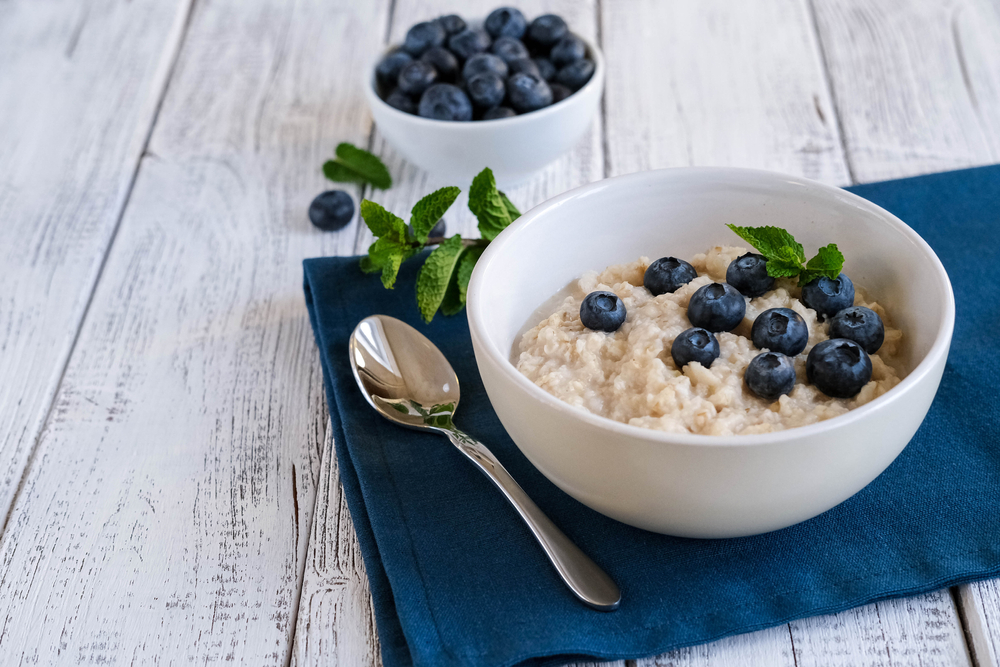“I’m a 35-year-old lady with a stressful job and pretty frantic life too. I travel a lot for my job, which is great, but it impacts on my sleep and also the option to eat healthy foods. I also have a young family and much of the burden of their care is on my shoulders. Whilst I thought I was coping I’ve realised that I’m constantly anxious. I feel tired and wired all the time and I feel life is getting on top of me. Have you any nutritional tips that I can easily incorporate into my life without making it more stressful?”
Clinical Nutritionist, Suzie Sawyer, answers.
I’m sorry to hear that life is challenging for you; it sounds like you have a lot on your plate without much support. It’s Stress Awareness Month as well, so many people will be evaluating their lives right now and how they can reduce stress and bring more calm to their busy days.
The role of cortisol
It’s fairly likely that your cortisol levels are raised, which is common in this situation. Essentially, the hormone cortisol is released as a normal part of our fight or flight mechanism in the body. However, when not managed correctly, the body thinks it’s permanently in this state, which will affect sleep, digestion, hormone balance and eventually the immune system.
The role of magnesium
Certain nutrients are needed to feed the adrenal glands that secrete these hormones. As an example, magnesium (our calming mineral) not only supports the adrenals but helps balance the nervous system too. Think about adding some broccoli or cauliflower to your evening meals. If you can’t get fresh, then keep some frozen in the fridge.

Oats are rich in magnesium but also vitamin B6, needed for cortisol production. I’m not sure whether you have breakfast or an extended fast in the morning, but some form of oat-based breakfast (overnight oats take two minutes to prepare and leave in the fridge) or heated up as porridge when you get to the office. Indeed, porridge or some form of oats or whole grains are generally available on most buffet breakfast tables in hotels around the world so try to opt for these.
Omega 3s

You certainly do not need to be spending hours in the kitchen so just keep everything simple if you can. Oily fish such as salmon or mackerel is rich in the omega-3 fats, needed for brain function and balanced mood. How about gently cooking some in the oven for dinner, maybe add an extra portion for lunch the next day, then serve with some quinoa (also rich in B-vitamins) and vegetables (don’t forget the broccoli!)
Reduce caffeine intake

I’m not sure how much caffeine you are having but this can create more anxiety and feelings of agitation when cortisol levels are raised. Plan to have one caffeinated drink per day ideally in the morning and then go for herbal teas.
Ashwagandha

I would also highly recommend taking the herb ashwagandha, which has been used in traditional ayurvedic medicine for centuries and is known to help calm the stress response. Ashwagandha is also great for sleep. You can easily find it in supplement form.
Breathing Techniques

Additionally, deep breathing plays a key role in getting the body out of fight or flight mode. Maybe try it for a few minutes before going to sleep – breathe in for a count of 5, hold for 5 and breathe out for 5. Repeat this for 3-5 minutes – it can be that simple to help you relax and prepare for a good night’s sleep.
Try to think about each mealtime as an opportunity to refuel and provide those essential nutrients which can best support your wellbeing. The better nourished you are, the more resilient you’ll be. Simple and small changes over a period of time can have big effects.
























Add comment